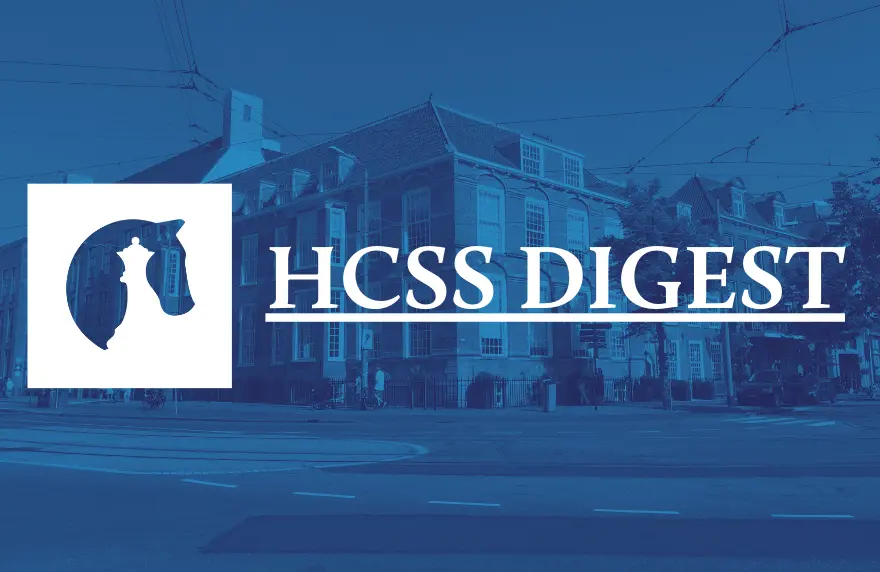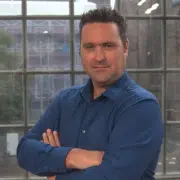Digital education in Africa, security sector reform, European maritime strategy, rare earth metals and the Dutch footprint in space – this latest HCSS Digest brings you up to speed with everything our analysts and experts have to say on geopolitics, global challenges and international security issues worldwide.
Good education is still inaccessible for many young people in Africa. Could digitization provide an answer here? In the latest episode of our BNR Nieuwsradio podcast De Strateeg, host Paul van Liempt discusses the issue with Mark Vlek de Coningh (Nuffic) and Kim Groeneweg (Jobortunity).
Is security sector reform (SSR) in fragile states a double-edged sword or can it contribute to conflict prevention and long term stability? On Thursday 17 June, HCSS strategic analyst Dorith Kool will give a presentation on a framework to assess security sector’s potential contribution to stability, during a webinar on Security Sector Reform <- register now!
In addition to geopolitical, financial and other crises, China and Russia are trying to split the EU. Can Europe meet these challenges? On Tuesday, June 1, Rob de Wijk will be a guest at the digital SGP youth event on “The Battle for Europe”.
What are the prospects of the development of European naval defense strategy at a time of heightened maritime tension? To answer that, the French Embassy in the Netherlands organized a webinar on European maritime strategy featuring Han ten Broeke and Frank Bekkers.
Experts have identified 17,000 asteroids which can be exploited for resource extraction, increasing the competition and militarization of space. Find out how the Netherlands can expand its space footprint in an online seminar on space featuring a small group of experts including strategic analysist Hugo van Manen, and moderated by HCSS director of research Tim Sweijs.
Global outrage this week, following the arrest of blogger and journalist Roman Protasevich in Belarus after his passenger plane was diverted to Minsk with a false bomb threat. How should the EU respond? Will sanctions do any good? Rob de Wijk commented on the issue in the media this week, including on BNR Nieuwsradio, EenVandaag television and NPO Radio’s Spraakmakers op 1.
The EU cannot leave military aggression by Belarus unanswered, Rob de Wijk subsequently wrote in his weekly column for Trouw. Sanctions are a first step, the next step is retaliation as a warning sign that these types of actions cannot go unpunished. But what will Russia do?
Freedom, peace, security and defense are not very sexy topics of conversation. Yet you have to be tremendously naive not to realize that freedom is under pressure worldwide, says HCSS strategic analyst Patrick Bolder in an extensive interview with De Vliegende Hollander.
How dependent are we really on China? For KRO-NCRV’s “Waarde van de Aarde”, Twan Huys delved into the world of rare earth metals, the asset with which China retains its power, and spoke with HCSS deputy director Michel Rademaker.
The joint Atlantic Council / Pardee Center report “China-US Competition: Measuring Global Influence” launched this week. The report draws on the Formal Bilateral Influence Capacity (F-BIC) dataset that offers information on the influence capacity of states in the economic, political and security dimension from 1960-2020. In a panel, Tim Sweijs shared his thoughts on the evolving nature of Sino-American competition, and on the utility of datasets such as the F-BIC for analysts and policymakers to understand and navigate this competition.
The European Commission’s Green Deal and farm-to-table strategy will have profound implications. But it’s also an opportunity for the Netherlands, with its enormous knowledge and capacity for innovation, writes Rob de Wijk in his column in Nieuwe Oogst.
The Expert Group of the International Military Council on Climate and Security (IMCCS) will launch the 2021 World Climate and Security Report on June 7 – register here for the live online launch!
A court in the Netherlands has ruled that by 2030, oil giant Shell must reduce its CO2 emissions by 45% compared to 2019 levels. But how can the company achieve these goals? And is this a big step for the climate? HCSS energy expert Jilles van den Beukel commented on the landmark case in newspapers Trouw, het Parool, het Financieele Dagblad and on NPO Radio 1.
In his column for Energeia, ‘An uncomfortable verdict’, Jilles van den Beukel states that the fact that the court treats Shell as a general fossil producer, and not as an oil and gas producer, is a serious shortcoming of this judgment.
We regularly hear about the Kurds or the Uyghurs, but there are many other peoples that form a homogeneous group without having their own independent state. On NPO Radio 1, HCSS Russia expert Helga Salemon talked about one such group: the Chechens.
The HCSS Cyber Program Internship is open for applications again! Don’t wait, and apply now!




